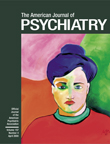Substance Abuse Disorders in Clinical Practice
It is noteworthy that the author, a distinguished senior clinician and investigator who knows the breadth and depth of the field, modestly begins this book by warning the reader about what is not covered in the book and what is not known in addiction medicine. Dr. Senay appreciates the complexities of the biopsychosocial factors that are involved in substance use disorders. He also appreciates the importance of the treatment relationship and of overcoming negative attitudes and stereotypes that too often stand in the way of understanding and treating our patients with substance use disorders.
In the first two chapters, Dr. Senay succinctly delineates the nitty-gritty elements of managing patients’ treatment needs, including an excellent overview of how to construct a treatment program and what it should consist of. Much wisdom about clinical practice and knowledge about patient needs are effectively condensed in these chapters.
I sometimes facetiously remark that it has been a blessing or a curse as a practitioner to have lived through two “drug epidemics” (heroin in the 1960s and cocaine in the 1980s). In either case, persisting up to the present time in office practice, where now most of my patients are dependent on alcohol or proprietary drugs, I have had the opportunity to work with a wide variety of patients with substance use disorders and garner much knowledge and understanding about the causes and consequences of substance use disorders and their treatment. Although I suspect Dr. Senay has a few more years on me in this field and embraces a different perspective than mine, it is reassuring that, independent of each other (I have frequently cited his research but have never met him), we come to similar conclusions about the practical and clinical need for understanding and treating patients with substance use disorders. There have been too many myths and controversies in addiction medicine/psychiatry, and Dr. Senay cuts through most of them with even-handed, sage observations and helpful clinical guidelines regarding understanding and working with all of the substances that cause drug dependency. Although Dr. Senay covers this ground in less than 250 pages, this master clinician’s fund of knowledge is encyclopedic, and he presents his extensive clinical experience and practical knowledge in an engageable and stimulating way.
Beyond specifics of the clinical aspects of managing drug toxicity and withdrawal, Dr. Senay brings a special “ethic” to his work with patients. In his view, patients with substance use disorders should be treated specially and humanely (not as a “special population”), with all the commitment and scientific acumen we can muster on their behalf. He recognizes the importance of denial but moves beyond it to appreciate the patient’s ambivalence about recovery and how to work with it. I agree with him in his respect for the prospect that a trusting relationship can often be established with a substance-abusing patient and that the clinician can obtain a reliable and valid history. This is accomplished by a nonjudgmental attitude and respect for a patient’s resistances. On the other hand, Dr. Senay is not soft about the deceit and unacceptable behaviors that can and do occur with behaviorally disturbed patients. He advocates that clinicians inform or persuasively confront patients about their “disease” or disorder and set firm limits when and if necessary—e.g., dealing with methadone divergence, violence, and the need for safety.
I found little with which to take issue in Dr. Senay’s book. I recommend it as an important, concise reference for students, beginning practitioners, and seasoned clinicians who need to be refreshed about the basic pharmacology of substances of abuse. Most of all, I recommend this book to all students and practitioners because it presents an enlightened and humane approach to treatment and meeting the complex needs of patients who suffer with substance use disorders.



